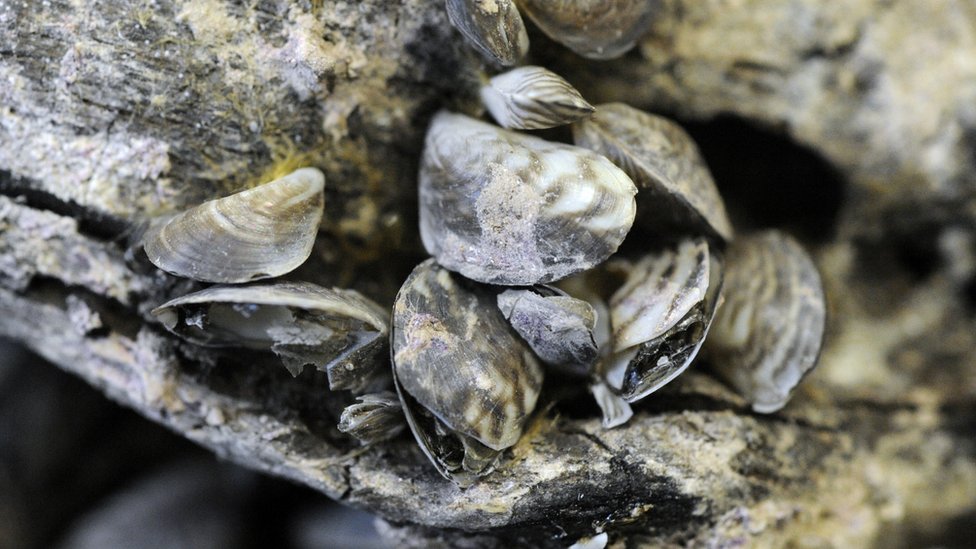

image copyrightGetty Images
An invasive non-native species of mussel that can harm wildlife and cause water pipe blockages has been discovered in the East Midlands.
The Environment Agency said quagga mussels had been found at Rutland Water and the River Trent in Lincolnshire.
Anglers and other waterway users have been asked to help stop the species spreading by checking, cleaning and drying their equipment.
Officials are also checking other rivers in the region.
The Environment Agency said quagga mussels, which originated in Ukraine, were first recorded in the UK in the River Thames near Heathrow Airport in 2014.
The molluscs form large colonies on hard surfaces, which can block pipes, and disrupt marine ecosystems by outcompeting native mussels.
It is not yet known how they came to be in the East Midlands.
The agency said while the mussels “do not pose any immediate direct threat to water quality, animals or people, they do spread rapidly and can block pipes and water-based assets, resulting in significant future maintenance costs”.
Area environment manager Geoff Craig said: “Unfortunately, further spread of the quagga mussels is highly likely, but we can slow down the spread.
“We urge all water users in the affected areas to follow the required bio-security procedures of ‘check, clean, dry’ whenever working or engaging in leisure activities in or near the water.”
The Environment Agency said it was also working with Anglian Water, which manages Rutland Water, and the GB Non-Native Species Secretariat “to agree an appropriate bio-security response”.
Sources: Environment Agency and the National Wildlife Federation
Follow BBC East Midlands on Facebook, Twitter, or Instagram. Send your story ideas to eastmidsnews@bbc.co.uk.
Read MoreFeedzy
Discover five warning signs that indicate it’s time to replace your car. From repair costs…
Having PPE on hand isn’t enough to protect your team. Learn how to enhance safety…
When it comes to maintaining or upgrading a home, roofing is often one of the…
When it comes to maintaining the integrity and value of your property, a sturdy roof…
When it comes to maintaining and enhancing the integrity of any structure, the quality of…
Rhode Island, renowned for its scenic coastlines and historic architecture, presents unique challenges and opportunities…